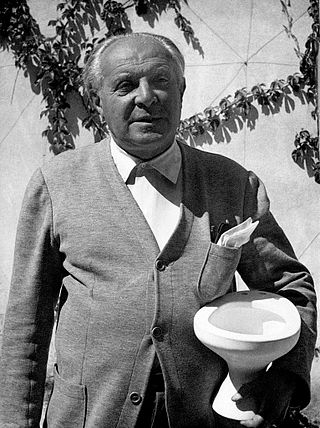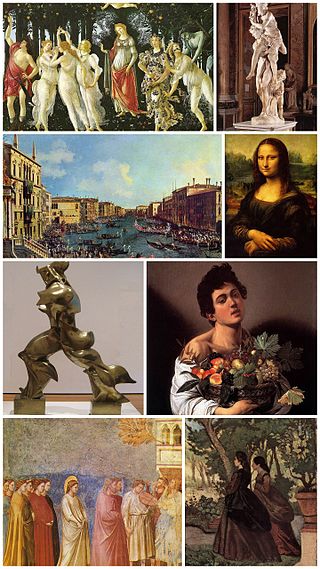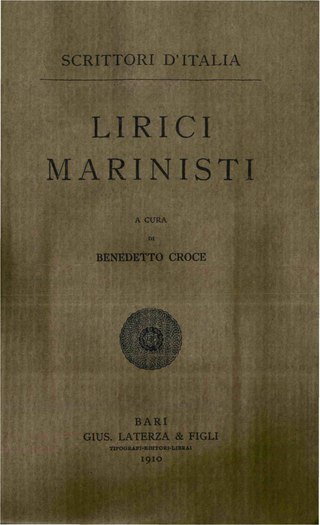
Mario Alberto Ettore Monicelli was an Italian film director and screenwriter and one of the masters of the Commedia all'Italiana. He was nominated six times for an Oscar, and was awarded the Golden Lion for his career.

Renato Terra had a career working in film as an actor, and has appeared in over 80 movies. In 1977 he retired to become a poet.
Carlo Rustichelli was an Italian film composer whose career spanned the 1940s to about 1990. His prolific output included about 250 film compositions, as well as arrangements for other films, and music for television.

Peppino De Filippo was an Italian actor.

Giovanni "Gio" Ponti was an Italian architect, industrial designer, furniture designer, artist, teacher, writer and publisher.
Giuseppe Antonio Borgese was an Italian writer, journalist, literary critic, Germanist, poet, playwright and academic naturalized American.

Giuseppe Prezzolini was an Italian literary critic, journalist, editor and writer. He later became an American citizen.

Augusto Genina was an Italian film pioneer. He was a movie producer and director.

Luigi Zampa was an Italian film director.

Mario Soldati was an Italian writer and film director. In 1954 he won the Strega Prize for Lettere da Capri. He directed several works adapted from novels, and worked with leading Italian actresses, such as Sophia Loren and Gina Lollobrigida.

The Italian National Olympic Committee, founded in 1914 and a member of the International Olympic Committee (IOC), is responsible for the development and management of sports activity in Italy. Within Italy, CONI recognizes 44 national sports federations, 19 associate sports disciplines, 15 promotional sports organizations, and 19 organizations for the betterment of sports. In total 95,000 sports clubs with 11,000,000 members are recognized. Its 2016 annual budget is 412,900,000 euros which is primarily funded by the Italian government.

Vittorio Umberto Antonio Maria Sgarbi is an Italian art critic, art historian, writer, politician, cultural commentator and television personality. He is President of the Museum of Modern and Contemporary Art of Trento and Rovereto. He was appointed curator of the Italian Pavilion at the 2011 Venice Biennale. Several times a member of the Italian Parliament, in 2008 he served as Cabinet Member for Culture, Arts and Sports in Milan's municipal government for six months when Mayor Letizia Moratti terminated his mandate as she saw him 'unfit for the job'. In 2012, he was removed as Mayor of Salemi by the Ministry of Interior after he failed to acknowledge Mafia interferences in his cabinet.

Novecento Italiano was an Italian artistic movement founded in Milan in 1922 to create an art based on the rhetoric of the fascism of Mussolini.

Anna Maria Rizzoli, is an Italian actress.
Ettore Sordini was an Italian artist, a disciple of Lucio Fontana, a friend and collaborator of Piero Manzoni and a member of the Gruppo del Cenobio.

Michelle Ferrari, is an Italian pornographic actress and television personality.

Federico Leonardo Lucia, known professionally as Fedez, is an Italian rapper, singer, songwriter, social media personality and businessman. In 2011, he released the albums Penisola che non c'è and Il mio primo disco da venduto, released as free digital downloads. His first studio album, Sig. Brainwash – L'arte di accontentare, was released in 2013, and it debuted at number one on the Italian Albums Chart. The album, which spawned three singles, including the top 10 hit "Cigno nero" featuring Francesca Michielin, was later certified 3× Platinum by the Federation of the Italian Music Industry. As of December 2021, Fedez has 5 #1 studio albums, 25 top ten singles and 50 Platinum certifications.
Andrea Della Corte was an Italian musicologist and critic. Born in Naples on 5 April 1883, Della Corte studied law at the University of the native city, but was self-taught in music. After some short experiences in Neapolitan papers, he moved to Turin, where he was music critic for La Stampa from 1919 to May 1967. He brought the music journalism in Italy to a level of «professionalism hitherto unknown». In Turin, Della Corte also taught history of music, both at the Conservatory (1926–53) and at the University (1939–53).
Pasquale Verrusio was an Italian painter, sculptor and engraver.

The Scrittori d'Italia was an Italian book collection, published by Giuseppe Laterza & figli from 1910 to 1987 in Bari. The series was born with the intent to define and explain a cultural canon of the new Italy, disassociating from a culture yet considered too much based on the classic of the humanism, and choosing to represent also the civil history of the newborn Italian State. The original work plan included 660 volumes, of which 287 were actually published for a total of 179 works.














